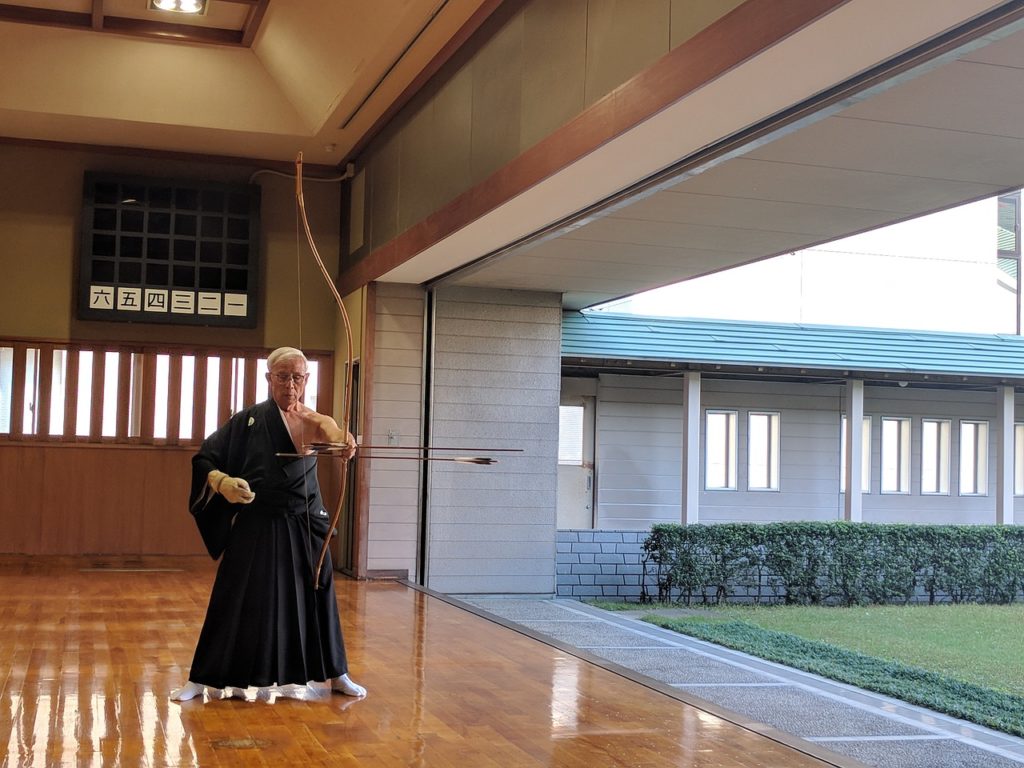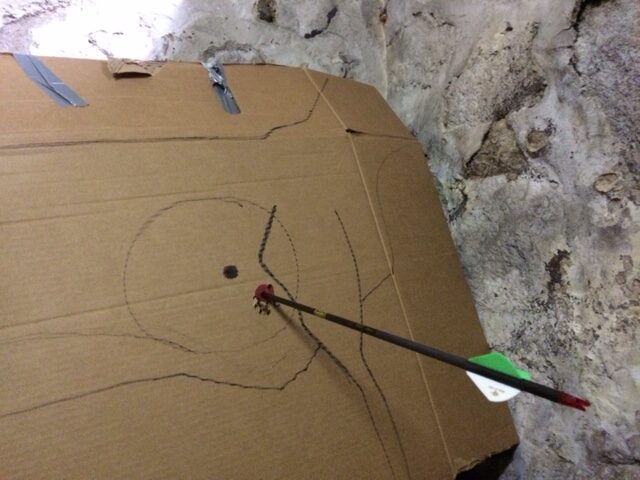My second oldest son and I were doing a wedding together. His cousin, my niece.
It was one of my first ones as a pastor.
As we were standing up in front of this old 100 year old barn, waiting for the guests to be seated, in order to get the show on the road, I asked my son who was a bit of a seasoned musician by now… “Do you have butterflies in your stomach?”
As he had some experience I assumed he’d say, “Nah, it’s old hat now.”
But he didn’t… he said, “Yeah, I always get them.”

“They still come?”
“They always do… to get through… just stick to the script, don’t improvise… that just makes it worse.”
Wise words.
Now that I’m a bit more experienced… I can totally agree with his wisdom.
But why do we feel the butterflies? We do “feel” them… and then we really freak out, start sweating, start to worry… so much so that some people get physically ill… and have to puke before a public performance.
So I asked myself, “What causes that if we can “feel” them?

If you research the Samurai warriors of Japan, you run into the fact that they committed Sepukku, ritualized suicide. It was a very ornate process.
The idea was to atone for your loss of honor by releasing your spirit by opening your abdomen with the short sword called a Wakizashi.
Then… someone would cut your head off.
Pretty gruesome.
But what made a Samurai attuned to his “gut feelings?”

It’s biology.
The human body has a nerve mass that surrounds the intestines or viscera… that is named “the vagus nerve.”
Not Vegas, like Viva Las Vegas, vagus, like vague, from Latin root meaning “wandering.”
It is a nerve bundle made up of five branches that “meander” through the body touching on all of our major organs… AND one of those branches goes from our “gut,” our “viscera,” directly BACK into our brain.
Thereby creating a loop of information.
The vagus nerve causes a gut reaction when we are placed into a stressful situation… where we experience, the all to familiar, response of “Fight or Flight.”
And instead of facing lions, bears, or wolves… like our ancestors… we are facing giving a presentation to the school board, delivering a speech in civics class, buying your first car at a dealership… or performing a wedding or funeral service… which cause all kinds of butterflies and having us feeling that “flight” would be a pretty good option right about now.
Now I know what causes the “butterflies,” and I can take actions to alleviate them… and have a better performance when speaking in public.
Understanding the nerve allows you to understand that you can affect that nerve… this will sound weird… but you can talk to it, or if you prefer… talk to yourself in order to have it operate in a positive way for you.

That’s right the vagus nerve has a job… it can alert you to a potential sticky situation… OR… create the chemical reaction that calms us down, creates clarity, focus, and confidence.
So when you are in a situation where you are feeling butterflies you can literally tell your vagus nerve, “Hey, we’ve been here before, stand down, there’s no lions.”
Then the vagus nerve chemically sends a signal to the brain that says, “Hey, chill out, it’s fine.” Which causes the brain to modulate it’s neurotransmitters, like serotonin and dopamine… which interrupt our negative thoughts, get us back on the beam… and chill us out.
Pretty amazing.
In order to be successful at anything you need a corresponding level of confidence.

You gain confidence by stepping a bit outside of your comfort zone and taking on new challenges that… and this is critical… have prepared for.
You may be prepared, but because it’s new… the butterflies will come… they always do.
But you can train your body, and your vagus nerve, to respond differently to these new stressful situations.
The “new” technique that I am employing, which isn’t new at all, is using “cold immersion therapy” to engage specifically with my vagus nerve. A daily cold shower, starting out slow, and working up to a three minute soak, allows the vagus nerve to operate optimally each day.
Other techniques that directly affect the vagus nerve… and your well being… deep rhythmic breathing, physical exercise, or if you can… a brisk walk of appropriate length. (walking is exercise but the length of the walk is more important than the intensity of it for this scenario)
Another term for these is “thought process interrupters,” think of the old saying, “Like a bucket of cold water to the face!”

The thing I like about this new information is that I can take ownership of my emotions, and feelings, butterflies and all… and have a corresponding positive action that directly affects my brain, mental balance, and overall wellness.
That’s pretty cool.
Working on my personal re-branding is causing me to stop and ask, question my beliefs, re-assess the knowledge that I think I know, causing me to fill in the gap of my missing years of personal development… especially my emotional development, in order to continue to grow.
If you are the type who pooh-poohs “emotions,” or “feelings,” and consider those to be a sign of weakness… I have to encourage you to investigate further…
because I use to think that way too.
I love all your writing but this one hit home. Thanks brother. I needed this.
Glad you liked it. Hope it helped.